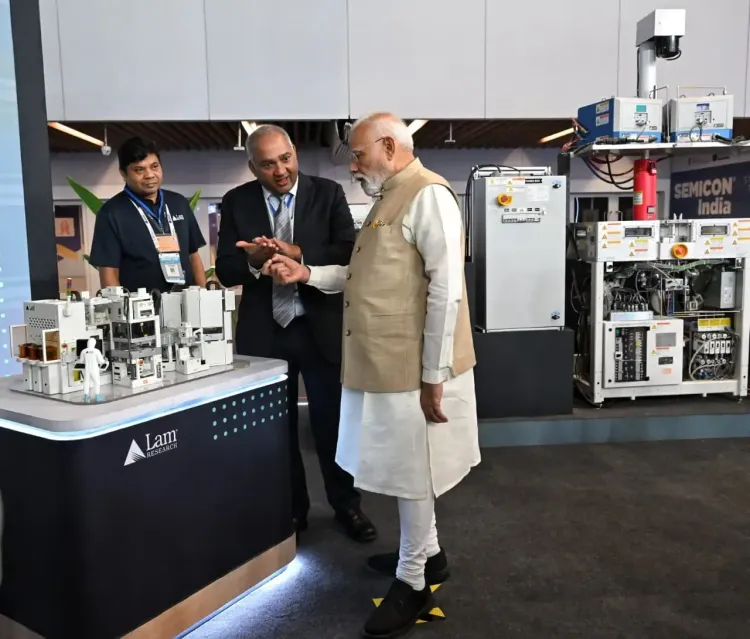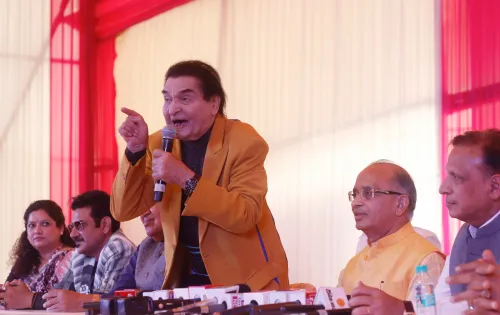How Are Indian Startups Advancing the 'Aatmanirbhar Chips' Initiative Under the DLI Scheme?

Synopsis
Key Takeaways
- 23 projects sanctioned under DLI Scheme.
- 72 companies have access to EDA tools.
- Innovative SoC Generator Platform introduced by InCore Semiconductors.
- Focus on indigenous chip design for various applications.
- Support from government enhances self-reliance in technology.
New Delhi, Sep 4 (NationPress) - With the support of the government's Design Linked Incentive (DLI) Scheme, the nation is witnessing a surge in domestic chip design and intellectual property rights (IPR) across vital sectors, including surveillance, energy metering, networking, and motor control, according to an announcement by the Ministry of Electronics and IT on Thursday.
The ministry reported that a total of 23 chip design projects have been approved under the DLI Scheme, allowing 72 companies access to industry-standard Electronic Design Automation (EDA) tools.
Many of these innovative startups presented their progress at Semicon India 2025, showcasing India's growing expertise and self-sufficiency in semiconductor chip design.
InCore Semiconductors, initiated by the developers of the SHAKTI Processors - India's first open-source RISC-V processor - has introduced a groundbreaking System-on-Chip (SoC) Generator Platform that slashes frontend chip design time from months to mere minutes.
This level of automation not only speeds up development cycles but also reduces costs and mitigates design risks, fostering quicker innovation for their clientele.
A test chip, fabricated using TSMC’s 40nm process node, features six heterogeneous RISC-V cores from InCore’s IP portfolio, a custom Network-on-Chip (NoC) with automatic protocol bridging, multiple integrated peripherals, and a fully operational software stack, including a Real-Time Operating System (RTOS), highlighting the platform's resilience, the ministry stated.
Aheesa Digital Innovations plans to provide its SoC and reference platforms to Original Equipment Manufacturers (OEMs) and Original Design Manufacturers (ODMs) in early 2026, allowing them to create tailored networking and broadband solutions utilizing a fully indigenously designed, Made-in-India SoC.
Additionally, four Indian firms—3rdiTech, Netrasemi, BigEndian Semiconductors, and Mindgrove Technologies—are actively developing indigenous SoC solutions for key applications such as surveillance and CCTV.
On the second day of Semicon India 2025, which took place at Yashobhoomi in New Delhi, Prime Minister Narendra Modi toured the exhibition stands.
He was joined by Electronics and IT Minister Ashwini Vaishnaw and Minister of State for Electronics and IT Jitin Prasada.
During his visit, the Prime Minister emphasized the crucial role of startups in advancing India’s semiconductor goals and the significance of creating Indian Intellectual Property (IP).









